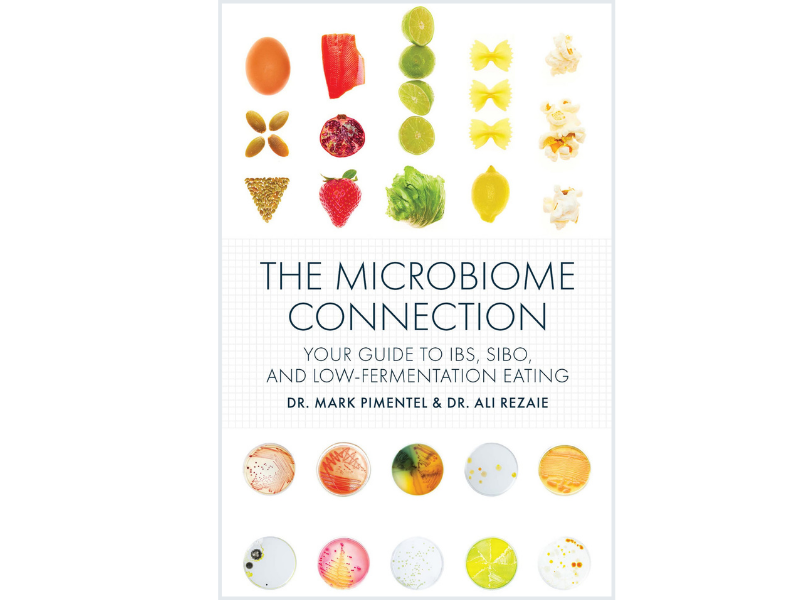
Travel can be challenging for individuals with Small Intestinal Bacterial Overgrowth (SIBO) or Irritable Bowel Syndrome (IBS), as it can disrupt gut function and trigger symptoms. Here are some helpful tips specifically for those with SIBO or IBS to ensure a smoother travel experience.
A key component is of course adhering to a Low Fermentation Eating diet, however there are additional steps you can take to minimize symptoms and maintain gut health. Whether you're flying or visiting high-altitude destinations, these tips will guide you in making informed choices.
1. Air Travel and Jet Lag
Before and During Your Flight: The changes in altitude and air pressure can wreak havoc on your gut. To minimize bloating and discomfort during your flight, it’s crucial to board the plane with minimal gas in your small intestine and give yourself the best starting point. We recommend following a Low Fermentation Eating diet as well as avoiding any foods that you know to trigger your symptoms in the days prior to your flight. Those with IBS may additionally want to avoid eating 2-4 hours prior to flying, if possible. Avoid eating heavily before flying and opt for your own nutritious food onboard, as airline snacks may aggravate symptoms. If you must eat on board the plane, do so when the plane is at a stable altitude (when they tell you that you can use large electronic devices), not just after you’ve boarded.
After Your Flight: When you fly long distances both your brain and your gut become jet-lagged, leading to challenges with bowel function. Typically your circadian rhythms become disrupted and this in turn dysregulates your guts cleaning waves, resulting in bloating and discomfort. To mitigate these effects, you should try to adjust as quickly as possible to the local time zone upon arrival. Drink plenty of water and try to shift both your eating and sleeping schedule to the current time as quickly as you can. As always, while following the Low Fermentation Eating diet plan to leave at least four to five hours between meals and avoid snacking to allow your natural cleaning waves to occur.
2. High Altitude Destinations:
High-altitude destinations of 8,000-10,000 feet can pose similar challenges to flying long distances for individuals with SIBO or IBS. As the altitude increases, the air pressure decreases and you’ll likely experience a bloated feeling with a distended abdomen. It's important to recognize that you may not feel your best initially, and adhering to a Low Fermentation Eating diet becomes even more crucial. You may also benefit from avoiding any gas causing foods for the day or two preceding your ascent to minimize the gas content in your small intestine.
3. Minimize the Risk of Food Poisoning:
We know that food poisoning is one of the leading causes of SIBO. When traveling, to minimize the risk of food poisoning, take precautions such as avoiding raw foods like salads and uncooked vegetables, and ensuring that all food is heated thoroughly. Stick to reputable restaurants and bottled water, and refrain from using ice cubes made from local water. Thaw frozen poultry completely before cooking and avoid consuming raw eggs. Practice good hygiene by washing fruits and vegetables, sanitizing hands before eating, and using disposable cups in hotel rooms. If traveling to a high-risk area, consulting with a healthcare professional about taking rifaximin pills may be beneficial, although it is important to note that is not an FDA-approved treatment.
4. Additional Precautions for Rental Homes:
If staying in a rental home or bed-and-breakfast, take extra precautions to ensure food safety. Clean countertops, sanitize chopping boards (using separate ones for meat and vegetables), and wash sponges in the dishwasher. Check that the refrigerator is functioning properly and pay attention to expiration dates on food items. These measures help minimize the risk of food spoilage and the presence of harmful microorganisms that can cause food poisoning.
Traveling with SIBO or IBS requires careful consideration of dietary choices and precautions to maintain gut health. By adhering to a Low Fermentation Eating diet, taking steps to smooth your adjustment to new time zones, reduce the impact of air pressure changes, and practicing good hygiene, individuals with SIBO or IBS can minimize symptoms and enjoy their travel experiences to the fullest.

The Microbiome Connection: Your Guide to IBS, SIBO and Low Fermentation Eating
A must-have resource for anyone who suffers from IBS or SIBO, or who wants to better understand their microbiome, this book will help you live a gut-happy and gut-healthy life.
